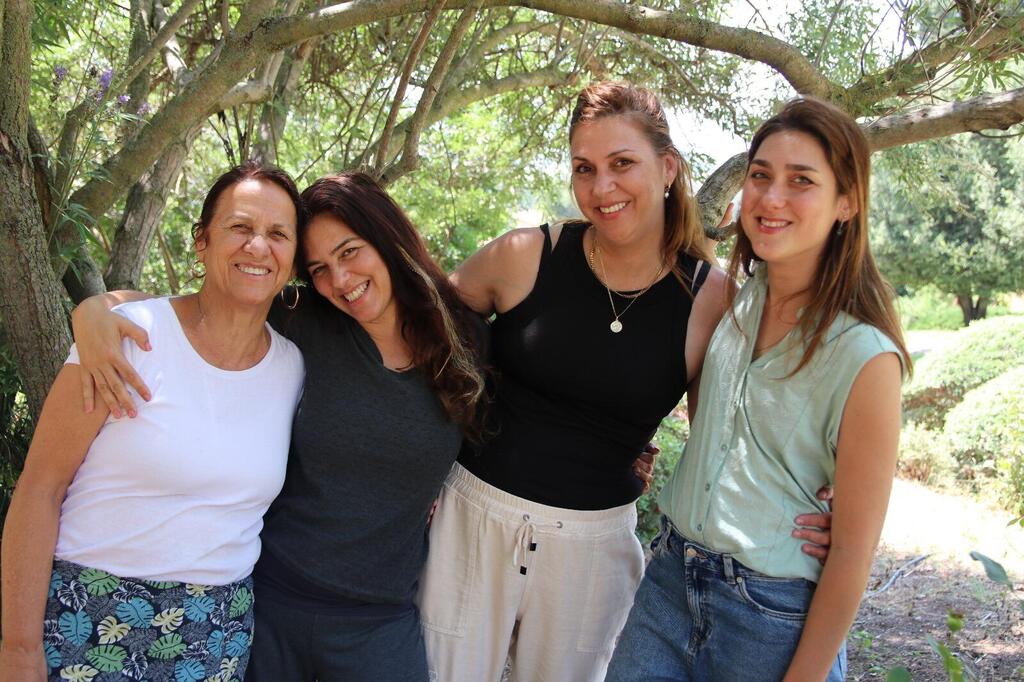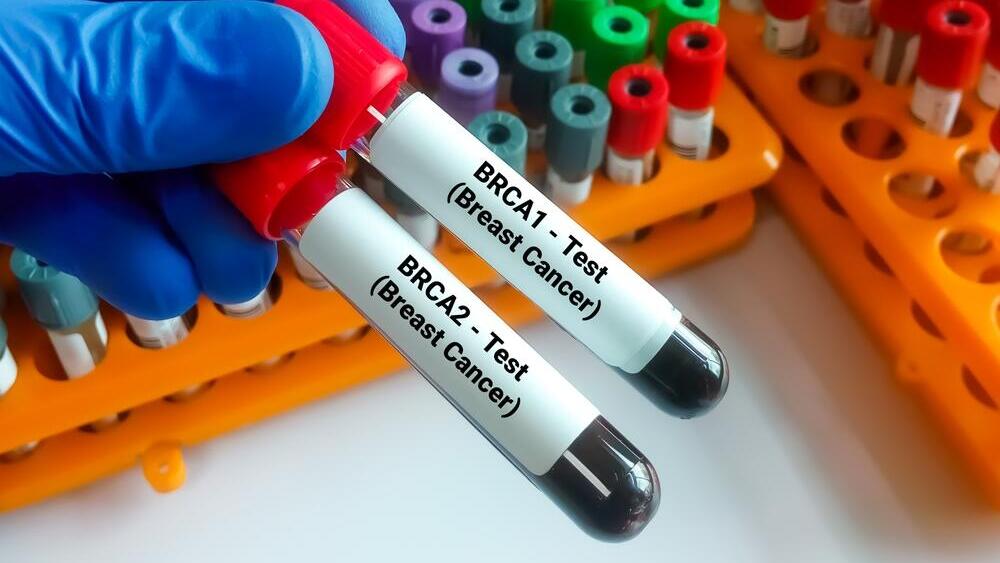Getting your Trinity Audio player ready...
When I was diagnosed with cancer at 50, I was a mother of three young daughters and enjoying one of the best periods of my life. After many years of teaching and managing schools in the north, I decided to take a sabbatical year to study in a coaching course for executives. I had been looking forward to this year for a long time, both to take a break from the intense work of school management and to broaden my horizons and professionalize in training managers.
During those days, my family was busy preparing for my oldest daughter Anat’s wedding. However, I started experiencing severe abdominal pain, but was convinced it was just inflammation. Unfortunately, even after learning it was cancer, I lived in denial, convincing myself it was something simple.
In hindsight, the abdominal pain turned out to be advanced ovarian cancer. At first, I was devastated and didn’t believe I would survive. It never occurred to me that I was in a high-risk group. Now, I know I could have spared myself this ordeal after my older sister was diagnosed with cancer several years earlier. If only I had known about the BRCA gene mutation test, my illness might have been preventable. Sadly, only after my diagnosis did all the women in my family get tested.
On the doctors’ recommendation, I underwent surgery to remove the tumor and had a hysterectomy, including ovaries, uterus and fallopian tubes, at Rambam Hospital. The medical team wasn’t sure it was ovarian cancer until the final diagnosis during surgery. After that, I began a series of chemotherapy treatments. When the doctors realized there was another patient from the same family (after my sister), they recommended BRCA mutation testing for all the women in the family. Sadly, not only my sisters but also my three daughters tested positive.
Three years after my initial illness, I was diagnosed with pelvic cancer and, a year later, another malignant tumor was found in my abdomen. Regrettably, I had to undergo the grueling chemotherapy treatments again, experiencing all the severe side effects – nausea, vomiting, weakness and hair loss. I didn’t think I would make it. Even today, when I meet old acquaintances who haven’t seen me in a while, they are surprised I’m still alive. Despite the immense suffering and hardship from battling cancer, I find solace in knowing that my illness gave my daughters the chance to significantly reduce their risk of disease.
My oldest daughter, Anat, 46, a mother of three sons and also a teacher, benefited from early detection. Six years ago, she chose to undergo a preventive oophorectomy. When I fell ill shortly before her wedding, she decided to have children first and then remove her ovaries to reduce her risk. She quickly understood the ticking time bomb and chose to defuse it.
For my second daughter, Yael, the story is different. At 44, in a relationship and a mother to a two-and-a-half-year-old, she too works in education. Unlike her sisters, she developed cancer at a young age. At 33, a precancerous breast tumor was found, and she underwent a full mastectomy. Doctors and family members are pressing her to have an oophorectomy, but she is still considering expanding her family. I believe each of us experiences this journey differently. Even after her full mastectomy, Yael insisted on keeping one breast to breastfeed. My youngest daughter is not yet 40, but she already has two children, and I believe she will opt for surgery soon.
My cancer diagnosis was a turning point for my family – it affected me, my daughters, and our entire family. It created a deep, unique bond among us that doesn’t exist in other families. We all share a similar story and understand better what each of us is facing. Ironically, my illness allowed my daughters to save their lives and prepare better for the future.
For the past nine months, we’ve been dealing not only with cancer and the BRCA gene mutation but also with the effects of the war. I’ve lived in Metula for the past few years and, like other residents, I had to evacuate my home. Having faced cancer many times, I feel this recent period is just another bump in the road. My heart aches for those who lost loved ones or had to leave their homes. I try to offer support and encouragement to others, as my personal journey taught me the importance of willpower.
Since my diagnosis, I’ve been a student of the Yemima method, believing that it’s essential to live peacefully and balanced, with proper giving and joy, alongside regular monitoring and early detection tests for cancer and genetic mutations. I urge women not to be afraid and to get tested for BRCA gene mutations. This test can save lives.
Professor Rinat Yerushalmi-Mishali, head of the Breast Oncology Unit at Davidoff Center, Beilinson Hospital, explains that “BRCA gene mutations are hereditary. A woman carrying the mutation has an increased risk of developing breast and/or ovarian cancer. The risk of developing breast cancer can reach 72% over a lifetime, and the risk of developing ovarian cancer is about 50% by age 70.”
 Prof. Rinat Yerushalmi-MishaliPhoto: Rabin Medical Center
Prof. Rinat Yerushalmi-MishaliPhoto: Rabin Medical Center“The BRCA genes, present in all humans, belong to a larger system responsible for repairing 'faults' in DNA. Throughout life, genetic code disruptions occur. Not all disruptions are significant, but a significant disruption is called a 'mutation.' Such a mutation can lead to uncontrolled cell division and the development of cancer.”
Yerushalmi-Mishali adds that the mutation is common among Ashkenazi Jews. Current data reports that one in 40 Ashkenazi women in Israel carries the gene (this data is being re-examined today), so the Health Ministry offers free testing for women of this descent. It’s important to note that BRCA gene mutations exist across various ethnicities and not just Ashkenazis, and eligibility for testing is determined by the likelihood that a woman is a carrier.
Why test at all?
“Knowing one’s carrier status allows for better screening adaptation. For example, including breast MRIs in screening tests enables earlier disease detection. Even after a breast cancer diagnosis, it’s advisable to perform the test if not already done. If a BRCA mutation is present, groundbreaking treatments from the PARP inhibitor family, specifically for carriers, can be offered.
“Testing other family members can help distinguish between those at increased risk (requiring early and intensive monitoring) and those who did not inherit the mutation and can follow general population screening guidelines. In any case, before undergoing the test, it’s recommended to consult a doctor specializing in the field to explain the different implications of the test.”



